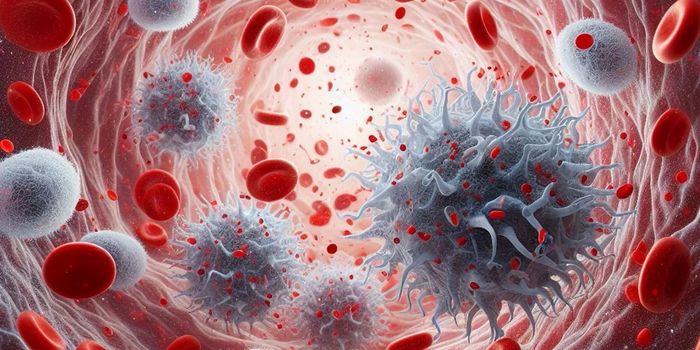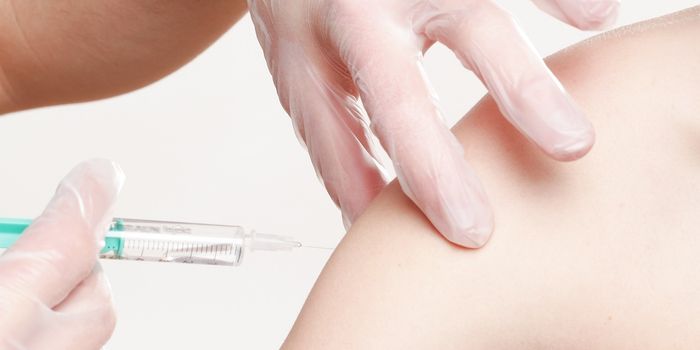Advancing CAR-T Therapy Through Immunophenotyping
Adoptive cell therapy has emerged as a promising alternative treatment for hematological and solid cancers, with CAR-T therapy standing out as a prominent avenue. In this approach, T cells are genetically engineered with chimeric antigen receptors (CARs) to enhance their targeting capabilities1-2. The outcome of CAR-T cell therapy hinges on a complex interplay of phenotype, activation, and functional profiling of these engineered cells. Immunophenotypic characterization of CAR-T cells assumes a pivotal role in ensuring treatment quality and facilitating continuous monitoring of treatment response1. In the process of immunophenotyping, engineered T cells are separated based on their markers to characterize the composition of the cell population within the sample. The strategic identification and isolation of specific CAR-T cell subsets is essential in augmenting therapy responses2.
Deciphering Cellular Composition, Defining CAR-T Therapy Efficacy
Immunophenotyping is a pivotal technique that combines specific antibodies with fluorescent compounds to reveal specific protein expression in cell populations to identify categorize the tagged cells. Immunophenotyping leverages the differences in surface markers among T cells, reflecting their differentiation, activation, and memory status2. These markers provide insights into immune cell development, function, proliferation potential, and long-term viability. The distinct surface marker profiles closely correlate with the efficacy of CAR-T cell therapy3. Essential markers for immunophenotypic analysis, including CD3, CD4, CD8, CD45RA, CD34R0, CCR7, CD27, and CD95, are presented in Table 1.
Table 1. A comprehensive phenotype of markers of T cell subsets (DOI: 10.1007/978-1-0716-0146-4)
Flow cytometry (FCM) remains the preferred method for evaluating immunophenotype and CAR-T cell subset functionality4. The quality of Flow cytometry (FACS) antibodies directly affects the success of experiments. Additionally, FCM enables monitoring of CAR-T cells in patients' blood, vital for predicting the likelihood and severity of cytokine release syndrome (CRS) or neurotoxicity5.
To support research on immunophenotyping, Sino Biological has developed a comprehensive portfolio of recombinant T cell biomarkers, as well as T cell-related FACS antibodies with high specificity and high affinity such as CD3, CD4, CD8, and CD45.
Figure 1. Quality products for T cell markers offered by Sino Biological
Selecting T-cell Subsets, Optimizing CAR-T Therapy Efficacy
Optimizing the efficacy of CAR-T therapy necessitates the preselection of T cell populations before CAR engineering. From the perspective of CD expression, T lymphocytes can be immunophenotyped on the basis of CD3 expression, which can be further subdivided, such as CD4+ and CD8+ T cells, distinguished by their subsets and memory and effector functions, exhibit diverse characteristics regarding external and internal markers, genetic programs, epigenetic factors, and metabolic pathways6. These subsets, intrinsically linked to CD3 molecule interactions in the T cell receptor (TCR) signaling pathway, greatly influence CAR-T cell phenotype and therapeutic effectiveness5-7. Notably, some studies propose that CD4+ CAR-T cells could elicit more potent antitumor responses against specific solid tumors compared to CD8+ cells8.
Figure 2. Schematic overview of the T-cell subsets https://doi.org/10.1111/all.15104
From the perspective of the activation phase, Naive and memory T cells, with their prolonged persistence and heightened antitumor activity, surpass effector T cells in therapeutic potential9. CAR-T cells exhibiting a memory-like phenotype, marked by surface markers such as CD62L, CCR7, CD45RA, and CD45RO, demonstrate superior efficacy3. In contrast, exhaustion-like phenotypes characterized by inhibitory receptor expression (PD-1, TIM-3, LAG3, CTLA4, and TIGIT) exhibit limited therapeutic potency3,10. CAR-T cell products derived from preselected naive/stem memory T cells (TN/SCM) exhibit enhanced expansion potential and reduced risk of CRS11.
Unveiling Activation and Exhaustion States, Ensuring CAR-T Therapy Efficacy
T cell activation is a critical step in CAR-T cell production that impacts the transduction efficiency, cell expansion rate, and differentiation. Surface receptor expression, including CD69, CD71, CD25, and MHC-II, aids in gauging T cell activation phases12. Co-stimulatory molecules like CD26, CD27, CD28, CD30, CD154, or CD40L may also be expressed upon activation13. Activated T cells can trigger toxicities due to the release of inflammatory cytokines such as TNF-α and IFN-γ14-15. Monitoring these cytokine levels ensures the efficacy of the T cell population (Figure 3). Tailoring T cell stimulation dosage influences CAR-T cell functionality, leading to a more consistent and potent therapeutic product16-17.
Figure 3. Different T cell phenotypes are profiled for the expression of 3 activation markers: CD69 (early), CD25 (late), and HLA-DR (even later). The 2 effector cytokines (IFNγ and TNFα) are also quantified using sandwich ELISA.
Cell exhaustion regulates the performance of CAR-T cells by minimizing their persistence and killing activity, resulting in a lower therapeutic potential of CAR-T in solid tumors. Exhaustion markers like PD-1, TIM-3, LAG3, CTLA4, and TIGIT provide insights into the state of CAR-T cell exhaustion, emphasizing the need for early T cell utilization to prevent exhaustion-related limitations18.
In addition, selecting different cytokine cocktails or suitable cytokines for CAR-T cell culture can significantly increase the efficacy of CAR-T cells. Sino Biological has successfully created extensive range of high-quality GMP-grade cytokines, as well as ELISA kits for the detection and measurement of residual cytokines. Sino Biological also offers a panel of recombinant exhaustion marker proteins with high-purity and high-bioactivity.
Figure 4. Premium quality cytokines and ELISA kits
Sino Biological's Support for CAR-T Therapy and Immunophenotyping
Immunophenotyping holds immense promise for enhancing CAR-T cell therapy by refining therapeutic efficiency and predicting treatment responses. As a globally leading supplier of bioreagents and CRO services, Sino Biological provides comprehensive solutions for CAR-T cell therapy. These solutions include reagents and services that support clients through each stage from early target discovery to the preclinical phase of research and development.
Sino Biological offers an array of reagents for CAR-T cell therapy development, including over 250 CAR-T target proteins, flow cytometry antibodies, GMP-grade cytokines, and GMP-grade SuperNuclease. Rigorous quality control measures are employed to ensure the efficacy and safety of CAR-T cell products including assessments of cell viability, population profiling, CAR detection, and cytotoxicity.
Figure 5. Comprehensive solutions for CAR-T therapies provided by Sino Biological
References
- Majzner, R. G., & Mackall, C. L. (2019). Clinical lessons learned from the first leg of the CAR T cell journey. Nature medicine, 25(9), 1341–1355. https://doi.org/10.1038/s41591-019-0564-6
- Chimeric antigen receptor T cells. Springer Science+Business Media, 2020. doi: 10.1007/978-1-0716-0146-4.
- Si, X., Xiao, L., Brown, C. E., & Wang, D. (2022). Preclinical Evaluation of CAR T Cell Function: In Vitro and In Vivo Models. International journal of molecular sciences, 23(6), 3154. https://doi.org/10.3390/ijms23063154
- U. Blache et al., “Advanced flow cytometry assays for immune monitoring of CAR-T cell applications,” Frontiers in Immunology, vol. 12, May 2021, doi: 10.3389/fimmu.2021.658314.
- Demaret, J., Varlet, P., Trauet, J., Beauvais, D., Grossemy, A., Hégo, F., Yakoub-Agha, I., & Labalette, M. (2021). Monitoring CAR T-cells using flow cytometry. Cytometry. Part B, Clinical cytometry, 100(2), 218–224. https://doi.org/10.1002/cyto.b.21941
- Golubovskaya, V., & Wu, L. (2016). Different Subsets of T Cells, Memory, Effector Functions, and CAR-T Immunotherapy. Cancers, 8(3), 36. https://doi.org/10.3390/cancers8030036
- M. E. Call and K. W. Wucherpfennig, “Molecular mechanisms for the assembly of the T cell receptor–CD3 complex,” Molecular Immunology, vol. 40, no. 18, pp. 1295–1305, Apr. 2004, doi: 10.1016/j.molimm.2003.11.017.
- D. Kravtsov, A. K. Erbe, P. M. Sondel, and A. L. Rakhmilevich, “Roles of CD4+ T cells as mediators of antitumor immunity,” Frontiers in Immunology, vol. 13, Sep. 2022, doi: 10.3389/fimmu.2022.972021.
- López-Cantillo, G., Urueña, C., Camacho, B. A., & Ramírez-Segura, C. (2022). CAR-T Cell Performance: How to Improve Their Persistence?. Frontiers in immunology, 13, 878209. https://doi.org/10.3389/fimmu.2022.878209
- C. R. F. Silveira et al., “Cytokines as an important player in the context of CAR-T cell therapy for cancer: Their role in tumor immunomodulation, manufacture, and clinical implications,” Frontiers in Immunology, vol. 13, Sep. 2022, doi: 10.3389/fimmu.2022.947648.
- S. Arcangeli et al., “CAR T cell manufacturing from naive/stem memory T lymphocytes enhances antitumor responses while curtailing cytokine release syndrome,” Journal of Clinical Investigation, vol. 132, no. 12, Jun. 2022, doi: 10.1172/jci150807.
- M. M. Naghizadeh, N. Hatamzade, F. G. Larsen, R. B. Kjærup, E. Wattrang, and T. S. Dalgaard, “Kinetics of activation marker expression after in vitro polyclonal stimulation of chicken peripheral T cells,” Cytometry Part A, vol. 101, no. 1, pp. 45–56, Jan. 2021, doi: 10.1002/cyto.a.24304.
- M. Shipkova and E. Wieland, “Surface markers of lymphocyte activation and markers of cell proliferation,” Clinica Chimica Acta, vol. 413, no. 17–18, pp. 1338–1349, Sep. 2012, doi: 10.1016/j.cca.2011.11.006.
- M. E. Martinez-Sanchez, L. Huerta, E. R. Alvarez-Buylla, and C. V. Lujan, “Role of cytokine combinations on CD4+ T cell differentiation, partial polarization, and plasticity: Continuous Network Modeling approach,” Frontiers in Physiology, vol. 9, Aug. 2018, doi: 10.3389/fphys.2018.00877.
- J. Zhu and W. E. Paul, “CD4 T cells: fates, functions, and faults,” Blood, vol. 112, no. 5, pp. 1557–1569, Sep. 2008, doi: 10.1182/blood-2008-05-078154.
- Y. Lee, et. al., "Regularion of CAR T cell-mediated cytokine release syndrome-like toxicity using low molecular weight adapters," Nature Communications, vol. 10, no. 1, Jun. 2019, doi: 10.1038/s41467-019-10565-7.
- N. Lapteva et al., “T-Cell receptor stimulation enhances the expansion and function of CD19 Chimeric Antigen Receptor–Expressing T cells,” Clinical Cancer Research, vol. 25, no. 24, pp. 7340–7350, Dec. 2019, doi: 10.1158/1078-0432.ccr-18-3199.
- Kouro, T., Himuro, H. & Sasada, T. Exhaustion of CAR T cells: potential causes and solutions. J Transl Med 20, 239 (2022). https://doi.org/10.1186/s12967-022-03442-3














